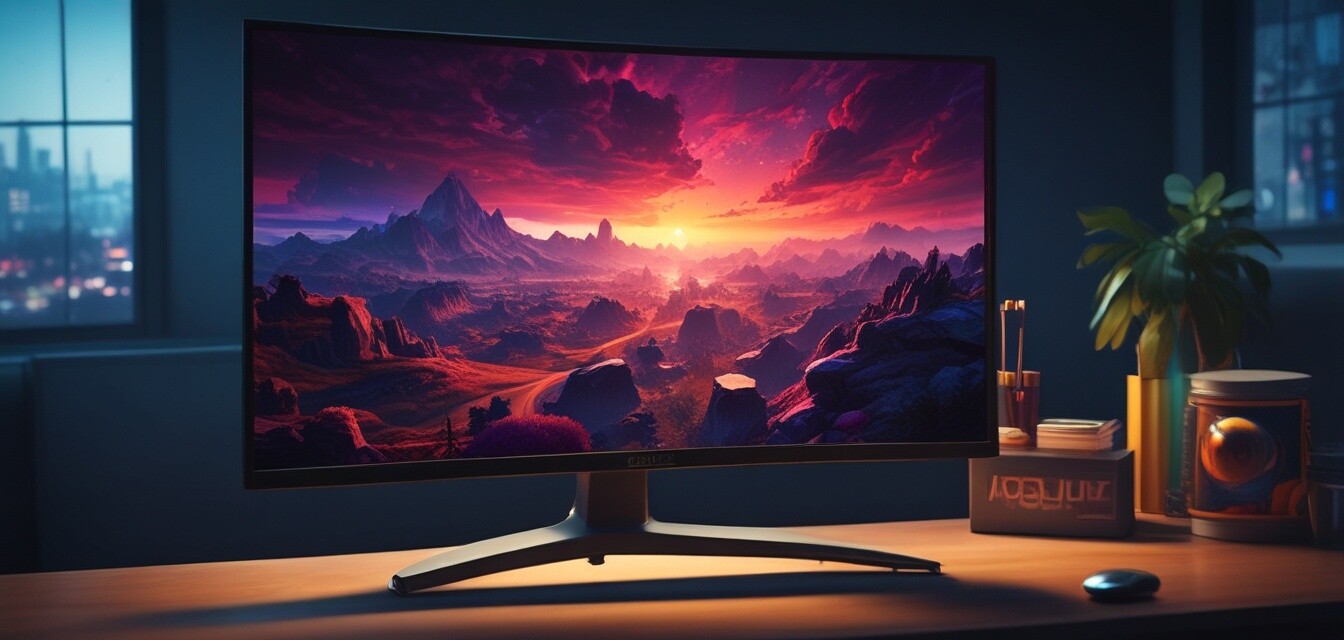
How to Optimize Gaming Settings on Your OLED Monitor
Key Takeaways
- Adjust color profiles for vivid visuals.
- Set the correct refresh rate for smooth gaming.
- Utilize low-latency modes for responsive gameplay.
- Calibrate your OLED monitor for accuracy.
- Maintain proper settings for different game genres.
Optimizing gaming settings on your OLED monitor can significantly enhance your gaming experience. Whether you're a casual gamer or a competitive player, tweaking various settings can lead to better visuals and improved performance. In this guide, we’ll cover essential settings like color profiles, refresh rates, and calibration tips to help you get the most out of your OLED monitor.
Understanding OLED Technology
OLED (Organic Light Emitting Diode) technology is known for its superior contrast ratios and rich color reproduction. Each pixel emits its own light, which allows for deeper blacks and brighter colors compared to traditional LCDs. To take full advantage of this technology, it's crucial to optimize your monitor settings appropriately.
1. Color Profile Settings
One of the first areas worth adjusting on your OLED monitor is the color profile. The right color settings can dramatically alter your experience.
Steps to adjust color profiles:
- Go to your monitor settings menu.
- Select 'Color' or 'Picture' settings.
- Choose an appropriate color profile (like 'Game', 'Cinema', or 'Standard').
- Calibrate further to enhance accuracy (if available).
2. Refresh Rate Optimization
Refresh rate is crucial for smoother gameplay, especially in fast-paced games. Higher refresh rates reduce motion blur, improving visual clarity.
How to set the refresh rate:
- Access your display settings on your PC or console.
- Look for 'Advanced Display Settings'.
- Select the highest refresh rate your monitor supports (usually 60Hz, 120Hz, or 144Hz).
3. Low Latency Modes
Enabling low latency modes can enhance responsiveness, especially in competitive gaming. These settings reduce input lag, ensuring that your actions are reflected on-screen immediately.
Check your low latency options:
- Find the 'Game Mode' or 'Low Latency Mode' in the monitor settings.
- Activate it to minimize lag.
- Adjust other performance settings as necessary for your gaming style.
4. Calibration for Accuracy
Calibrating your monitor ensures accurate color and brightness levels. This step can be vital for competitive gaming where differences can affect performance.
Calibration tips:
- Use a calibration tool for the best results.
- Adjust the brightness based on your environment.
- Fine-tune the contrast for better depth.
5. Specific Settings for Game Genres
Different game genres may benefit from different settings. Here’s a quick guide:
| Game Genre | Recommended Settings |
|---|---|
| First-Person Shooters | High refresh rate, low latency mode enabled |
| RPGs | Balanced color settings, moderate brightness |
| Racing Games | High contrast, fast refresh rate |
| Casual Games | Standard settings with comfortable brightness |
Conclusion
Optimizing your OLED monitor's settings is essential for achieving the best performance and visual clarity during gameplay. Don’t hesitate to play around with the settings to find what feels right for you. Remember, each game might require different optimizations, so stay flexible and enjoy your gaming sessions!
Pros
- Vivid color reproduction enhances gaming visuals.
- High refresh rates ensure smooth motion graphics.
- Personalized settings improve overall gaming experience.
Cons
- Can take time for optimal calibration.
- Some settings may not have universal appeal.
For more information on specific categories of OLED gaming monitors, visit our sections on 4K OLED Gaming Monitors, Budget-Friendly OLED Gaming Monitors, and Buying Guides to find what fits your needs.